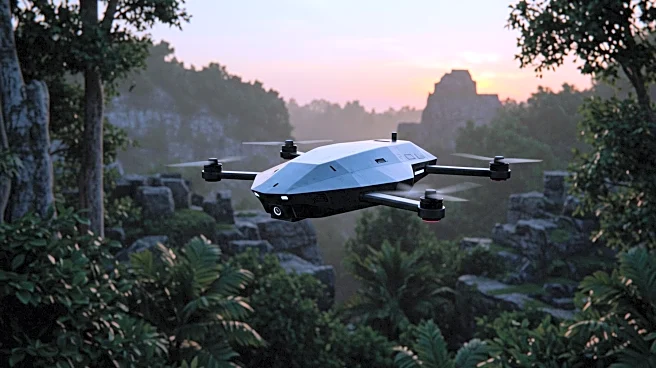What's Happening?
The remake of Metal Gear Solid 3: Snake Eater, titled Metal Gear Solid Delta, has been released, offering a modernized version of the classic stealth game. The game retains the original's narrative and stealth mechanics while introducing improved controls and graphical fidelity. Players navigate through a fictional jungle, engaging in stealth missions that require strategic planning and reflexes. The remake aims to recapture the essence of the original game, which was celebrated for its intricate storyline and stealth-focused gameplay. The developers have preserved the original voice acting and music, enhancing the nostalgic experience for players familiar with the 2004 release.
Why It's Important?
The release of Metal Gear Solid Delta is significant for the gaming industry as it highlights the enduring appeal of classic games and the potential for successful remakes. By modernizing the controls and graphics while maintaining the original's core elements, the game appeals to both new players and long-time fans. This approach could influence future remakes, encouraging developers to balance nostalgia with innovation. The game's success may also impact Konami's strategy, potentially leading to more remakes of popular titles. Additionally, it underscores the importance of storytelling and immersive gameplay in maintaining a game's relevance over time.
What's Next?
As Metal Gear Solid Delta gains traction, it may prompt Konami to consider remaking other titles in the series, potentially revitalizing interest in the franchise. The game's reception will likely influence the development of future stealth games, encouraging a focus on narrative depth and strategic gameplay. Fans and critics will continue to analyze the remake's fidelity to the original, which could lead to discussions about the role of creators like Hideo Kojima in such projects. The gaming community's response may also shape the direction of remakes in the industry, balancing modern advancements with the preservation of classic elements.
Beyond the Headlines
The remake raises questions about the role of original creators in the development of remakes and the collaborative nature of game development. While Hideo Kojima's influence is evident, the absence of his direct involvement highlights the contributions of the broader development team. This situation prompts reflection on the importance of creative vision versus collaborative execution in producing successful games. Additionally, the remake's focus on traditional masculinity and its portrayal of gender dynamics may spark discussions about cultural representation in video games, influencing future narratives and character development.











